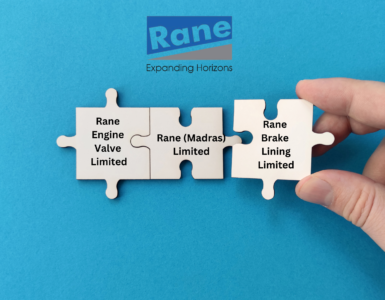On March 24 2014, the Board of Directors of infrastructure conglomerate Jaiprakash Associates Limited (JAL) had approved signing of Share Purchase Agreement with Dalmia Cement (Bharat) Limited for sale of 74% stake (9,89,01,000 equity shares owned by it) in the paid-up equity share capital of Bokaro Jaypee Cement Limited (BJCL) [a joint venture between JAL and Steel Authority of India Ltd (SAIL)] at value Rs 690 crore to Dalmia Cement (Bharat) Limited or any of its associates/affiliates. The total enterprise value was around Rs 1,150 crore.
WHY SALE BY JAYPEE:
Jaiprakash Associates’ balance sheet has been stretched due to the huge debt and it needed to sell assets to reduce the stress and survive. In fact, most infrastructure companies are looking at asset sales for reducing debt and Jaiprakash Associates was able to seal a few deals and move closer to their target of fundraising.
JAL has been on an asset selling spree to deleverage its balance sheet. The proceeds of the stake sale will help Jaiprakash Associates in its plan to cut the Rs. 60,000 crore debts on its books. For the debt-ridden Jaypee Group, the deal follows the sale of two hydro-power projects in Himachal Pradesh for Rs 10,500 crore to Abu Dhabi’s National Energy Company. It was the largest foreign direct investment (FDI) in the battered Indian power sector in recent times. In 2013, it sold its 4.8 million tonnes per annum capacity cement plant to Aditya Birla Group’s UltraTech Cement for Rs 3,800 crore and in May 2013, had sold 300 acres land at Greater Noida to Gaursons for Rs 1,500 crore.
WHAT IS FOR DALMIA GROUP?
In late 2012, Dalmia Cement (Bharat) signed an agreement to buy Adhunik Cement, a privately held firm based in Kolkata with cement manufacturing units located in Meghalaya for Rs 560 crore in multiple tranches. Dalmia is continually on the acquisition spree in the eastern part of the country. With the acquisition, it gave Dalmia an opportunity to strengthen and consolidate its position in the eastern India market. Dalmia Cement Current installed cement capacity (including subsidiary and associates) reached 20MTPA. DCBL also holds 47.3 per cent stake in OCL India, a major cement player in the eastern region, and is expanding capacity. The company is also setting up a 2.5 mpta cement plant at Belgaum in Karnataka with an investment of Rs 1,344 crore apart from expanding its capacity in Assam.
FUNDING OF THE ACQUISITION:
The proposed acquisition will be funded through a mix of debt and internal accruals.
VALUATION:
During the year 2013, the cement industry saw a lot of consolidation of value around $3.3bn (Rs 19,800 crore). My Home industries, which has paid around Rs 4,375 a tonne for the acquisition of Sree Jayajothi Cements Limited and another is Dalmia group which had paid Rs 7,233 a tonne for the acquisition of Adhunik cement in Meghalaya. French cement maker Vicat Group was planning to buy out its Indian partner Sagar Cements 49% stake in JV, Vicat Sagar Cements for a consideration of Rs 4,100 crore, Chettinad cement corporation limited had acquired Hyderabad-based Anjani Portland for an enterprise value of Rs 360-380 crore.
The current deal works out to be Rs 5,476 per tonne of the installed capacity. And the consideration for the transaction works out to approximately Rs. 69.74 per share (against its cost of Rs. 18.57 per share). So the JAL has sold its stake in the Bokaro plant at a premium.
The price paid by Dalmia per tonne for the deal is higher than what it paid to buy one small cement firm (Calcom Cement) in the eastern region of the country last year but lower than what it has paid for acquisition of Adhunik Cement in Meghalaya as above discussed. The Bokaro unit is profit-making. And in the previous fiscal year’s annual report, JAL said that the Bokaro joint venture had generated an aggregate profit of Rs.100 crore. Based on this, the valuation is pegged at around 10 times earnings before interest, tax, depreciation and amortization (Ebitda). The valuation has been on the higher side considering that the company has a 30-year clinker supply arrangement with JAL and 30-year slag supply arrangement with SAIL.
CONCLUSION:
Overall, given the circumstances of ballooning debt and finance charges usurping most of the operating profits, Jaiprakash Associates has no option but to make tough choices like this. And the company is also sitting on the huge asset base as sale turnover to assets ratio is one of the lowest in infra industry at 0.2 times implying very low utilisation and many of these assets are considered to be noncore and contributing very less to the profitability. The deals by JAL will bring in required funds to reduce debt. This will bring improvement in the business environment and material reduction in interest costs and will help build investor confidence in the company.
Whereas for Dalmia the acquisition is at the premium and on the higher side considering that the company has a 30 years clinker supply arrangement with JAL and 30-year slag supply arrangement with SAIL. But no doubt consolidation will create value for stakeholders of both the companies. In any case consolidation of businesses will be very positive for the industry and customers and Dalmia will become the prominent player in Eastern India




